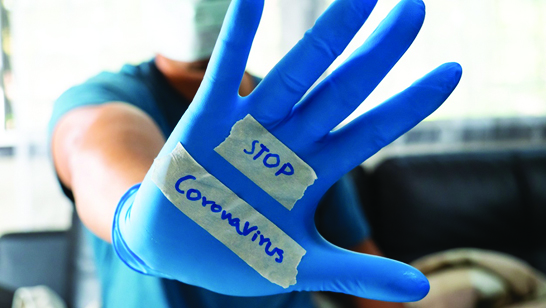
The novel coronavirus continues intimidating the whole world irrespective of any differences. The pandemic does not terrify only those countries with low economic status and weaker health-care system; it has also put the most prosperous countries that have advanced economies and well-developed healthcare system in dire and challenging situation.
The social, economic and political crisis of COVID-19, as many researchers and economists have predicted, is immense and wide-ranging. Particularly, for those countries that are overwhelmed easily by local infections, the threat is devastating and backbreaking. Thus, governments are taking a number of measures to respond to the threat and win the battle.
The Government of Ethiopia is also undertaking similar measures pressingly to reduce the transmission of the coronavirus pandemic and lessen the impacts it may impose upon the country. To this effect, it has been working with various government institutions, humanitarian organizations, and individual volunteers among others because all have key role to play in minimizing the transmission of the pandemic and averting the impacts on society.
Higher education institutions across the nation though are closed and sent students to their respective places; they have been striving and taking part to discharge their social responsibilities. Jimma and Gondar universities can be showcases in this regard.
According to Dr. Ahmed Zeynudin, COVID-19 Rapid Response Team Leader with Jimma University the threat the pandemic causes is immense and it needs concerted efforts from all. Given that, the University, in collaboration with Jimma Zone and Jimma City Administration, has set up Rapid Response Team to increase pandemic’s preparedness and enhance the health and human resource capacity against COVID-19.
The team has four major working sub teams which include quarantine case management sub team, surveillance sub team, communication, prevention and research, innovation and laboratory capacity sub team and operational support.
In line with this, priority was given to provide case management training (training of trainers) for health professionals. Once the training is provided on the case, it would be expanded to large pool of experts working at zones and woredas, he added.
The University has also prepared a quarantine center that can accommodate more than three thousand people and enables to conduct testing for people with the symptoms of coronavirus. In addition to this, the University along with the city administration and health bureau has taken part in opening quarantine centers in each of the 31 woredas. And currently, some of the centers have already become operational, he remarked.
Concurrent to disseminating basic information about COVID-19 via various media, the case team provides necessary information and advices in rural areas and places that have a tendency to large public gatherings. It has also established body temperature screening, checking and hand washing points.
As more priority is given to prevention, the University Hospital reviewed some of its working procedures. For instance, apart from interrupting the annual leave of employees, it has suspended patients’ visiting hours. Likewise, it has made available free call center, 6238, for the public to gather information, get advice, and report new COVID-19 cases, Dr. Ahmed remarked.
Mentioning that Gondar University has also set up a taskforce that is assigned to work on COVID-19 related cases, Yidagnu Mandefero, University’s Public and International Relations Director mentioned that the university is working persistently to combat the spread of coronavirus, prevent its serious and imminent threat ensure the health or safety of the public mainly focusing on preventive actions.
She noted that the university is providing necessary protective equipment for vulnerable employees. Furthermore, by responding to West Gondar Zone’s call for support, the taskforce is assisting around one hundred South Sudan migrants in Metema with groceries and non-food items.
The university has also set up isolation and quarantine centers in its premises, Maraki Campus, for confirmed COVID-19 patients, individuals who come into close contact with COVID-19 patients and have to confine in the center for incubation period (which is currently identified as 14 days) as well as health professionals.
Collaborating with various nongovernmental organizations, the University has established hand washing points and is conducting awareness raising activities in areas where there is high tendency to large public gatherings.
At the same time, the sub-team established by professionals drawn from various fields, such as psychology, sociology, law and other, are mobilizing and educating the public to accomplish the purpose, she added.
The Ethiopian Herald April 22/2020
BY BETELHEM BEDLU




